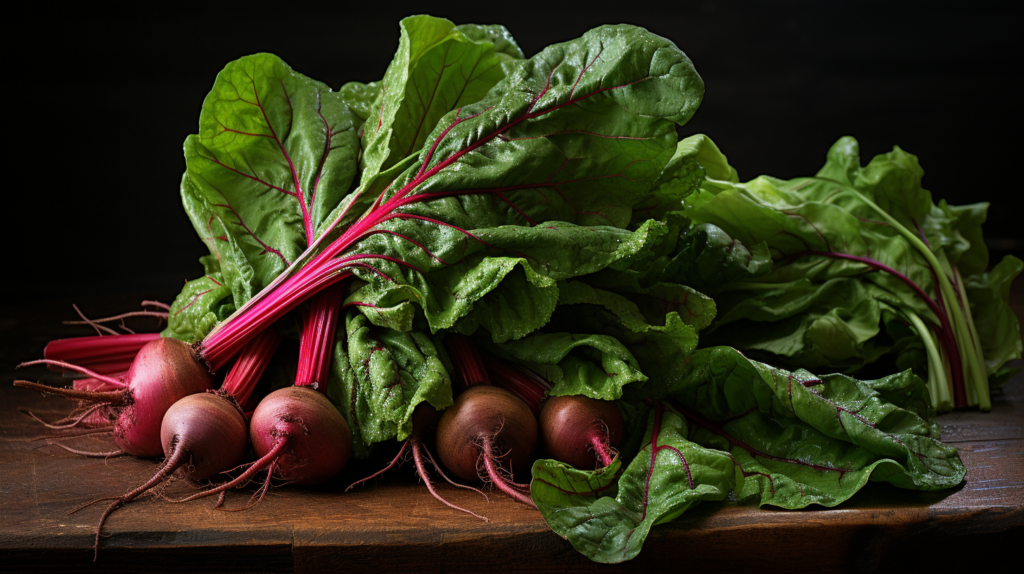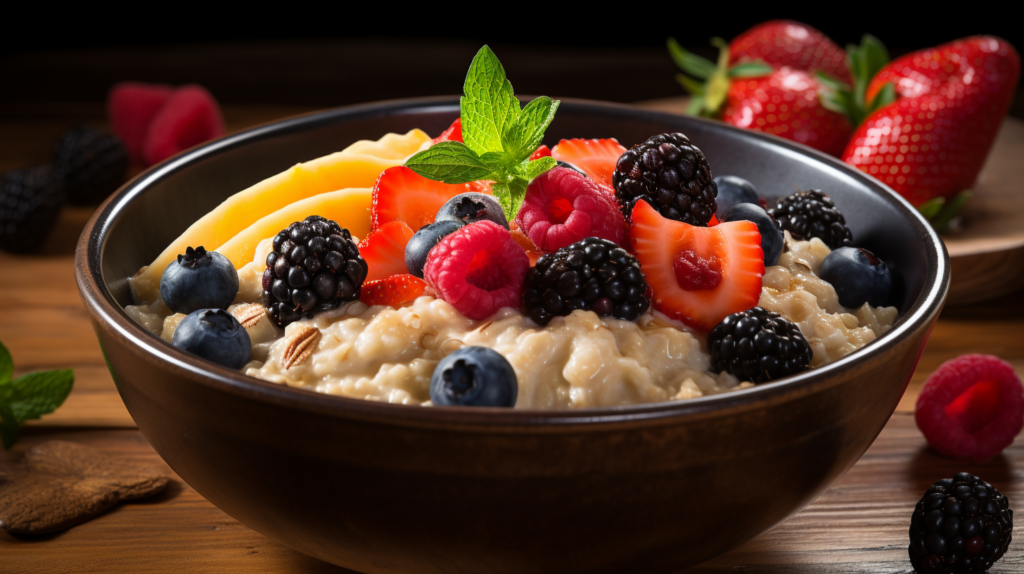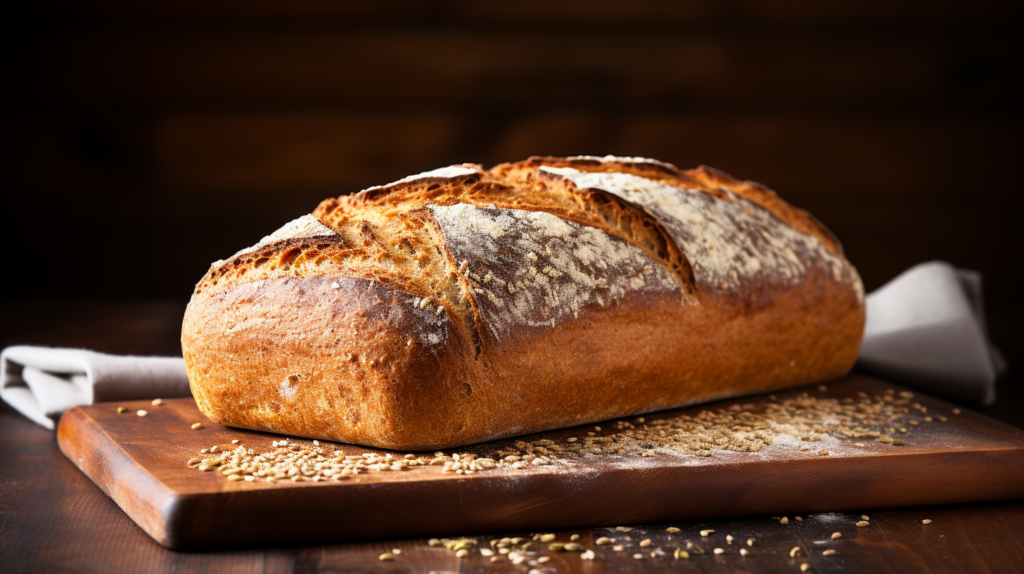If you’re looking for a simple and effective way to improve your digestive health and overall well-being, look no further than a high-fiber diet. By incorporating fiber-rich foods into your daily routine, you can experience a range of benefits that can have a lasting positive impact on your health.
A high-fiber diet can help regulate bowel movements, prevent constipation, and support a healthy gut microbiome. Additionally, it can aid in weight management, blood sugar control, and cardiovascular health. By reducing the risk of conditions such as type 2 diabetes and colorectal cancer, a high-fiber diet can also contribute to disease prevention.
Fortunately, there are many simple and delicious ways to incorporate fiber-rich foods into your diet. Whether you prefer fruits, vegetables, whole grains, or legumes, there’s no shortage of options to choose from.
Key Takeaways:
- A high-fiber diet can have a positive impact on long-term digestive wellness and overall health
- A high-fiber diet can improve digestive health, aid in weight management and blood sugar control, promote cardiovascular health, and contribute to disease prevention
- Incorporating fiber-rich foods into your daily diet can be simple and delicious

What is a High-Fiber Diet?
If you’re looking to improve your digestive health and overall well-being, a high-fiber diet is an excellent place to start. Dietary fiber is a type of carbohydrate that your body can’t digest, and it’s found in a variety of plant-based foods, including fruits, vegetables, whole grains, and legumes.
The importance of dietary fiber cannot be overstated, as it plays a crucial role in maintaining good health. There are two types of fiber: soluble and insoluble. Soluble fiber dissolves in water and forms a gel-like substance in your digestive tract, while insoluble fiber helps move food through your digestive system and adds bulk to your stool.
The benefits of increasing fiber intake are numerous. Not only can it help with digestive issues, but it can also impact the body in many other ways. For example, fiber can regulate blood sugar levels, lower cholesterol, and aid in weight loss.
The impact of fiber on the body is multifaceted and goes beyond simply helping with digestion. Adequate fiber intake can improve your overall health and well-being in significant ways, making it an essential component of a healthy lifestyle.
Improved Digestive Health
A high-fiber diet can have numerous health benefits, starting with improved digestive health. By consuming foods rich in fiber, you can help promote regular bowel movements, prevent constipation, and improve your gut microbiome, which is crucial for overall digestive wellness.
Dietary fiber is the portion of plant foods that your body cannot digest. Unlike other nutrients, fiber does not break down during digestion, and it passes through your system relatively intact. This is why fiber is so essential for healthy digestion. It adds bulk to your stool, which helps it move through your intestines, and it also feeds the friendly bacteria in your gut, promoting a healthy balance of microflora.
| Health Benefits of High-Fiber Diets | How a High-Fiber Diet Improves Health | Positive Effects of Consuming a High-Fiber Diet |
|---|---|---|
| Prevents constipation | Increases stool bulk, promoting regular bowel movements | Feeds friendly gut bacteria for better microbiome health |
| Reduces the risk of diverticulitis | Softens stool, making it easier to pass and less likely to cause inflammation | May reduce the risk of certain types of cancer |
| Supports healthy gut microbiome | Feeds friendly bacteria, limiting harmful bacteria | May reduce the risk of heart disease |
By consuming a high-fiber diet, you can enjoy numerous benefits for your long-term digestive wellness. If you are not already incorporating fiber-rich foods into your diet, consider adding more fruits, vegetables, whole grains, and legumes to your meals.
- Start your day with a high-fiber breakfast, such as oatmeal or whole-grain cereal
- Snack on fresh fruit, raw veggies, or roasted chickpeas
- Add fiber-rich foods to your recipes, such as quinoa, brown rice, or lentils
By making simple changes to your diet, you can enjoy the positive effects of consuming a high-fiber diet and promote improved digestive health.

Weight Management and Blood Sugar Control
If you’re looking for reasons to follow a high-fiber diet, weight management and blood sugar control are two compelling ones. Consuming a high-fiber diet can have several positive effects on your body, including maintaining a healthy weight and regulating blood sugar levels.
One of the primary benefits of increasing fiber intake is that fiber-rich foods can help you feel fuller for longer. This means that you’ll be less likely to overeat or snack on unhealthy foods throughout the day.
In addition to promoting satiety and managing appetite, high-fiber diets have been shown to regulate blood sugar levels. Soluble fiber, in particular, can slow down the absorption of sugar in the bloodstream, preventing spikes in blood sugar levels. This makes fiber an essential nutrient for people with diabetes or those at risk of developing the condition.
By incorporating more fiber-rich foods into your diet, such as fruits, vegetables, legumes, and whole grains, you can reap these benefits and maintain a healthy weight while keeping your blood sugar levels in check.
Cardiovascular Health Benefits
A high-fiber diet has numerous health benefits that can improve your overall well-being. One of the most significant benefits is its positive impact on cardiovascular health.
Dietary fiber can help to lower cholesterol levels, reduce inflammation, and improve blood pressure, all of which can contribute to a healthier heart and a lower risk of heart disease.
| Study | Results |
|---|---|
| A study published in the American Journal of Clinical Nutrition | found that a diet high in fiber resulted in lower levels of LDL (“bad”) cholesterol and improved cardiovascular health. |
| Another study published in the Journal of the American College of Cardiology | found that consuming a high-fiber diet reduced the risk of heart disease by up to 40%. |
Incorporating fiber-rich foods such as whole grains, fruits, vegetables, legumes, and nuts into your diet can have a significant impact on your cardiovascular health. By reducing cholesterol levels, decreasing inflammation, and improving blood pressure, you can help keep your heart healthy and reduce your risk of cardiovascular disease.

Disease Prevention
Adding a high amount of fiber to your diet can significantly reduce the risk of diseases such as type 2 diabetes, heart disease, colorectal cancer, and diverticulitis.
Fiber-rich Diet Advantages
Studies suggest that people who consume a fiber-rich diet are 30% less likely to develop type 2 diabetes than those who don’t.
A high-fiber diet can also reduce the risk of heart disease by up to 40%. This is because fiber lowers blood pressure, reduces inflammation, and lowers cholesterol levels.
As for colorectal cancer, research shows that those who consume a high-fiber diet are at a lower risk of developing the disease.
Lastly, a fiber-rich diet is known to prevent diverticulitis, which is the inflammation of the diverticula, small pouches that form in the walls of the colon.
High-Fiber Diet Benefits
By incorporating a high-fiber diet into your daily routine, you can increase the intake of nutrients and improve your overall health.
A fiber-rich diet can help regulate blood sugar levels, reduce inflammation, promote regular bowel movements, and lower cholesterol levels.
Additionally, a high-fiber diet can help you feel full for longer periods, which can aid in weight management.
Benefits of a High-Fiber Diet
Consuming more fiber has many benefits for both short-term and long-term health. As mentioned earlier, a high-fiber diet can help prevent a range of diseases, promote weight loss, and improve digestive health.
Other benefits of a high-fiber diet include reducing the risk of stroke, lowering blood pressure, and aiding in the absorption of essential nutrients.

Incorporating Fiber-Rich Foods into Your Diet
If you’re looking to reap the benefits of a high-fiber diet, it’s important to know how to incorporate fiber-rich foods into your meals. Here are some tips for increasing your fiber intake:
1. Start your day with fiber
Aim to eat a high-fiber breakfast each day to start your day off on the right foot. Try adding fresh fruit to your morning oatmeal or yogurt, or opt for whole-grain toast instead of white.
2. Choose whole grains
When selecting grains, opt for whole-grain varieties such as brown rice, quinoa, and whole-wheat pasta instead of processed white versions. You can also try swapping white bread for whole-grain bread.
3. Get creative with fruits and veggies
Adding more fruits and vegetables to your diet is an easy way to boost your fiber intake. Get creative by incorporating a variety of colors and textures into your meals. Try to have at least one serving of fruits and veggies with each meal.
4. Snack smart
When choosing snacks, opt for high-fiber options such as fresh fruit, nuts, and vegetable sticks with hummus. Avoid processed snack foods that are high in sugar and low in nutrients.
5. Be mindful of food prep
When preparing your meals, be mindful of how you’re cooking your food. Steaming, roasting, and grilling are all healthy cooking methods that can help retain the fiber content of your foods.
Incorporating fiber-rich foods into your diet doesn’t have to be difficult or complicated. By making simple swaps and being mindful of the foods you choose, you can enjoy the benefits of a high-fiber diet.
Potential Side Effects and Precautions
Although a high-fiber diet can have numerous health benefits, it is important to be aware of potential side effects and take necessary precautions.
Impact of Fiber on the Body
When increasing your fiber intake, your digestive system may need time to adjust. Some common side effects of a high-fiber diet include bloating, gas, and abdominal discomfort. To minimize these symptoms, it is best to gradually increase your fiber intake and drink plenty of water.
Health Benefits of High-Fiber Diets
Despite possible side effects, the health benefits of a high-fiber diet far outweigh the risks. In addition to improving digestive health, a high-fiber diet can aid in weight management, regulate blood sugar levels, and contribute to cardiovascular health.
Benefits of Increasing Fiber Intake
By increasing your fiber intake, you can enjoy long-term health benefits and reduce the risk of various diseases. High-fiber diets have been shown to lower the risk of type 2 diabetes, colorectal cancer, and diverticulitis.
Precautions for Individuals with Specific Health Conditions
If you have a specific health condition, it is best to consult with your healthcare provider before making significant changes to your diet. Individuals with digestive disorders such as Crohn’s disease or irritable bowel syndrome may need to follow a modified high-fiber diet. Additionally, those with kidney disease may need to limit their intake of high-fiber foods.
Overall, a high-fiber diet can be a beneficial addition to your daily routine. By being mindful of potential side effects and taking necessary precautions, you can reap the health benefits of increasing your fiber intake.

Conclusion
By now, you understand the many benefits of incorporating a high-fiber diet into your daily routine. The advantages of adopting a fiber-rich diet are multifaceted and can impact various areas of your health and well-being.
High-Fiber Diet Benefits
A high-fiber diet, as we discussed, can help promote:
- Improved digestive health
- Weight management
- Blood sugar control
- Cardiovascular health benefits
- Disease prevention
In addition, a high-fiber diet can be a great way to balance your diet, especially if you are vegetarian or vegan. By incorporating more fruits, vegetables, and whole grains, you can ensure that you are getting all the necessary vitamins, minerals, and nutrients your body needs.
Benefits of a High-Fiber Diet
In summary, some of the benefits of a high-fiber diet include:
- Lowering cholesterol levels
- Reducing the risk of heart disease
- Preventing constipation
- Supporting a healthy gut microbiome
- Reducing the risk of type 2 diabetes
- Preventing colorectal cancer
- Reducing the risk of diverticulitis
- Promoting weight loss
- Regulating blood sugar levels
Fiber-Rich Diet Advantages
There are numerous fiber-rich foods to choose from, ranging from whole-grain bread to fresh fruits and vegetables. Incorporating these foods into your diet may seem daunting, but it doesn’t have to be complicated. There are plenty of simple and delicious high-fiber meal plans available.
Incorporating Fiber-Rich Foods into Your Diet
For those looking to boost their fiber intake, there are several ways to do so:
- Choose whole-grain products over refined ones
- Opt for fresh fruits and vegetables instead of processed snacks
- Include legumes in your meals
- Add nuts and seeds to your diet in moderation
By gradually increasing your fiber intake, you can minimize any potential side effects and reap the full benefits of a high-fiber diet.
Get Started Today
The benefits of a high-fiber diet cannot be overstated. Whether you are looking to improve your digestive health, manage your weight, or prevent disease, incorporating more fiber-rich foods into your diet can make a significant difference.
So start today by making simple changes to your diet. Choose a high-fiber breakfast cereal, swap out your usual snack for a piece of fresh fruit, or add more veggies to your dinner plate. Small changes can lead to big results when it comes to your health.
Remember, the path to a healthier you starts with your diet. Incorporating a high-fiber diet is an excellent first step towards a lifetime of good health.
FAQ
What are the benefits of a high-fiber diet?
A high-fiber diet has numerous benefits, including improved digestive health, weight management, blood sugar control, cardiovascular health, and disease prevention.
What is a high-fiber diet?
A high-fiber diet consists of consuming foods that are rich in dietary fiber. It is important for maintaining good health and promoting overall well-being.
How does a high-fiber diet improve digestive health?
A high-fiber diet promotes regular bowel movements, prevents constipation, and supports a healthy gut microbiome, leading to improved digestive health.
Can a high-fiber diet help with weight management?
Yes, a high-fiber diet can aid in weight management by promoting satiety, managing appetite, and supporting a healthy metabolism.
Does a high-fiber diet help control blood sugar levels?
Yes, consuming a high-fiber diet can help regulate blood sugar levels and improve glycemic control, making it beneficial for individuals with diabetes or prediabetes.
How does a high-fiber diet benefit cardiovascular health?
A high-fiber diet can lower cholesterol levels, reduce the risk of heart disease, and improve overall cardiovascular well-being.
Can a high-fiber diet help prevent diseases?
Yes, a high-fiber diet can contribute to the prevention of various diseases, including type 2 diabetes, colorectal cancer, and diverticulitis.
How can I incorporate fiber-rich foods into my diet?
You can incorporate fiber-rich foods into your diet by including sources such as whole grains, fruits, vegetables, legumes, and nuts. It is important to gradually increase fiber intake and aim for a balanced and varied high-fiber meal plan.
Are there any side effects or precautions associated with a high-fiber diet?
Some individuals may experience digestive discomfort when first increasing their fiber intake. It is recommended to gradually increase fiber consumption and drink plenty of water. If you have specific health conditions, it is advisable to consult with a healthcare professional before making significant changes to your diet.















